Why are FAMILIES and mental health advocates of loved ones WITH SERIOUS BRAIN DISORDERS fighting so hard FOR RECLASSIFICATION?Recently, the term Serious Brain Disorder (SBD) has been circulating in my Facebook mental health advocacy groups more and more. At first, it seemed as if these circles of advocates wanted the insurance companies to code Serious Mental Illnesses (SMIs) differently so they would issue better compensation to psychiatric providers and so patients could have easier access to treatment. In that case, I thought, why not address it with how the insurance companies are required to code them? But it starts elsewhere, beyond the insurance companies. As I explored and researched the issue, it became clear that taking Serious Mental Illnesses seriously must include labeling it transparently and as unbiased as possible. Here are several reasons why families and mental health advocates of loved ones with Serious Mental Illness—especially schizophrenia and the like—are fighting with all their hearts, souls, and minds to have it recognized as what it truly is: Serious Brain Disorder. First, What is SMI?The Diagnostic and Statistical Manual of Mental Illnesses defines Serious Mental Illness as “a small subset of the 300 mental illnesses that are in DSM.” “According to the National Institute of Mental Health, serious mental illness is relatively rare, affecting only 5% of the population over 18. Serious mental illness includes schizophrenia; the subset of major depression called ‘severe, major depression’; the subset of bipolar disorder classified as ‘severe’ and a few other disorders.”(4) One of the sources I interviewed pointed out that the general public doesn’t know what Serious Mental Illness is so reclassification would clarify the concept. On the other hand, I pointed out, wouldn’t that muddy the water? Not if they are educated. SBD EffortsAn organization advocating for the reclassification of SMI to SBD is the National Shattering Silence Coalition (NSSC). The nonprofit has eight points of unity members align under, and the first is their primary concern:
The Two Were Once OneThe two disciplines—neurology and psychiatry—are not as different as one may think. In fact, at one point they were one discipline. Historically, psychiatry and psychology were a part of neuropsychiatry until “psychiatrists enthusiastically embraced the key that they were given to the human psyche, and this new ‘mentalistic’ approach consequently detached psychiatry from neurology,” this article in neuro.psychiatryonline.org explains. “It may be further speculated that neurologists, too, accepted this dichotomy and were relieved to leave the treatment of mental illness to others.”(1) A Broken System Slighted and MisunderstoodMental health and the demand for psychotherapy and psychiatry are coming into the forefront on matters related to COVID-19’s mental toll on peoples’ psyches. However, advocates for SBD have been begging for practical solutions to a broken mental healthcare system long before the present worldwide crisis. Jeanne Allen Gore, SBD advocate, co-founder, and Coordinator of NSSC, argues that mental healthcare as an industry has been misconstrued, underfunded, and at a large disadvantage from neurology and pathology sciences and healthcare systems. Gore points out, “If you do the math, there is a glaring mismatch: $36.55 spent on adults with SBD compared to $478 on those with Alzheimer’s, which is 13 times, or 1,327% more per person.” According to Gore, other brain disorders like Alzheimer’s and autism have been inclined to more empathetic responses from the public. Since Alzheimer’s and autism have been funded and fought for their position at the table of medical sciences to be recognized as structural, biological, and medical brain disorders, it appears they garner more compassionate attitudes and legitimized views from society. The Science Has Been ThereIn the article at neuro.psychiatryonline.org, authors Shahar Arzy, M.D., Ph.D., and Shlomo Danziger, M.A. explain, “With our current scientific understanding of the cerebral basis of psychiatric disorders, the era of the computational, data, and genomic revolutions once again merges the domains of neurology and psychiatry for a neuroscientific-based diagnosis, monitoring, and treatment of neuropsychiatric diseases.”(1) In regards to SBDs like schizophrenia and symptoms like psychosis, science and technology are making ways to merge the disciplines of neurology and psychiatry. Especially in disorders like schizophrenia, severe depression, and severe bipolar disorder where psychosis is a symptom, these are brain-based and medical in nature. “More recent and dramatic evidence has come largely through functional magnetic resonance imaging and positron emission tomography,” per Mary G Baker, President, European Parkinson’s Disease Association as stated in Baker, Kale, and Menken.(2) Mary Palafox, RN, Chair of the Schizophrenia and Psychosis Action Alliance (S&PAA) states, “It’s not a debate whether schizophrenia is a neurological illness. Science has already determined schizophrenia to be a neuro-developmental disorder.” You can visit their website over the next few months and follow how S&PAA is actively changing the treatment paradigm for those with schizophrenia spectrum disorders. A Legal Loophole and Political ProblemsYet in practical solutions to psychosis in schizophrenia, psychiatrists cannot treat psychosis if the patient is not voluntarily admitted or concedes to treatment by their own will. In any other discipline, in a state of psychosis as a result of a medical condition, the doctors must treat, and their hands aren’t tied by laws. The danger of the legalities with SMIs or SBDs is what happens to many with SBD like schizophrenia when untreated, known as “dying with their rights on.” Jeanne Allen Gore writes: “People with neurological illnesses, under medical standards of care, have access to resources and supportive care that those diagnosed with a ‘mental illness’ do not have access to. Their doctor makes the decisions about what level of care is needed and when it’s needed, not a judge. For decades, the decision to admit a patient with SBD for medical care has been made based on laws requiring dangerousness and the availability of hospital beds, or should I say, lack thereof, rather than medical necessity.” She emphasizes, “This unconscionably cruel system has resulted in horrific abuses, neglect, and suffering. Our loved ones end up homeless, incarcerated, or dead far too soon. Science has proven these are no-fault, neurological brain disorders. Clinicians, doctors, and scientists know this. They are not a failure to control one’s behavior, a character weakness, or the result of a traumatic childhood.” Behavioral and mental health sciences have their value in psychosocial rehabilitation for substance use. Psychotherapy continues to be a respected and evidence-based approach for those with cognitive damage and disorders from substance use, trauma, and brain injury. The value of psychology and psychiatry cannot be ignored and compartmentalized, and there is a place for all these studies to effectively work together to help patients and those who care for them. It won’t be achieved as effectively and as successfully if true severe, serious mental illness, is not taken seriously in and of itself. To do that, action must be taken to move psychiatry and neurology back into a working relationship. The advances in science are here and there is enough evidence to show the validity of a medical cause of schizophrenia and these types of severe illnesses. The Bottom LineThe battle to have SMI recognized as SBDs continues, in order to be funded for more research to find better treatments and more physical tests connecting the symptomology of psychosis to the etiology (causes) of biological and physical structures. When the standard world health organizations take serious brain disorders seriously, then doors can open to more changes and better care. Then insurance payers can code them “medical” and doctors in hospitals and ERs will have to treat them as any other medical condition: with integrity, compassion, and ethics. Advocates for SBDs are pleading for this shift in terminology and semantics because of the severity of the illnesses and the brokenness of the system that currently treats those with them. With language that articulates that these disorders are brain-based and physical, reclassifying SMI to be recognized through medical standards can lead to better care and more practical solutions for individuals who suffer from it. This will level the playing field for equity in research and treatment funding, awareness campaigns, and give access to care and programs like #HousingThatHeals, just as Alzheimer’s and autism have achieved. With every discovery we make to understand mental illness, we will all inevitably have to face the reality that “mental” is medical. Reclassifying Serious Mental Illnesses as Serious Brain Disorders is the gateway to the broader acceptance of that reality. references
addendum from Kerry Martin, CEo & FounderAn added benefit of reclassification is removing the word "mental" from our narrative which would erode stigma in our society — in our workplaces, schools, social media, etc — saving lives and lessening suffering for our children, youth and adults struggling with their mental health. Stigma is trapping far too many behind its wall in silence and in shame, keeping those in need from reaching out for help. And, for those who believe we have made great strides in eradicating stigma, I would ask you, why hasn't our own Congress repealed a blatantly discriminatory law that has been on the books for almost 60 years, the IMD Exclusion, that has resulted in marginalizing our most vulnerable citizens, incarcerating them in our jails and prisons, walking over them on our cold streets, and pushing them into early graves?
0 Comments
1/18/2022 Three Words, I Need Help, Changed His Life - A Father Finds Happiness After Suicide Attempt And is now Helping Others do same as Stigma Fighter And Mental Health advocateRead NowMeet Pat Lawson, one of our stigma fighters on our Wall of Solidarity in our Accelerating Mental Wellness Campaign. Pat is many things to many people but I will try and sum it up here. He is a loving, devoted and amazing husband and father, a much loved son and brother, incredible friend, international keynote speaker for mental health and suicide prevention and founder of 3Words Mental Health Awareness. From the outside looking in it seems as if he is totally fine doesn’t it? Looks can be deceiving. Pat has his own mental health challenges and diagnoses and things got so bad for him that he tried to end his own life. "DON'T MAN UP. IF YOU WANT TO BE TOUGH, EXPRESS YOUR EMOTIONS."Nobody knew the internal pain Pat was suffering. He hid it from his wife, his parents, friends and sisters. On the outside he was this exuberant happy go lucky man, but on the inside he was struggling. He didn’t reach out for help as most men don’t. Men are far less likely to seek help for a mental illness due to a number of reasons, e.g., societal factors like they have to suck it up and be a man, stigma and long standing cultural issues around men. While Pat hid his mental health from everyone, he sought no support. He thought he had to “man up”. It was this that led him to the fateful day he tried to take his own life. Thankfully Pat wasn’t successful. The world would have lost someone really special if he had been. After his attempt he told his wife, who had no idea that Pat was struggling. It took him attempting to take his own life to finally open up to his wife and family, who were in disbelief as he didn’t portray any outside symptoms of mental illness. In Pat’s own words, asking for help was the hardest thing to do but he was so relieved when he did. This isn’t a story that ends with Pat. Countless men go through the same thing and they don’t seek help as it’s seen as a sign of weakness. But, Pat has a message to men: “Don’t man up. If you want to be tough, express your emotions.” how 3 words - "I need Help" - changed his lifeHere is a video of Pat explaining his story and how three words - “I need help” - changed his life. They are the hardest words to say and Pat still has difficulty saying them. Share his story to help other men say 3 wordsPat is now an amazing advocate for men's mental health and works tirelessly to help those in need. Sharing his story has helped him recover and while he still struggles, he has tools and support around him now which makes things easier. We are so grateful for Pat letting us tell his story and for being one of our amazing stigma fighters. Follow 3Words on Facebook and Instagram to keep up with Pat’s advocacy work. And, let's share his story to help others share his 3 words. We all deserve to find happiness. AuthorPost by Erin Macauley, Chief Operating Officer & Mental Health Advocate, Accelerating Social Good; Australia Chair, Accelerating Mental Wellness Campaign. 12/15/2021 Challenges Those with Bipolar Diagnosis Confront in Workplaces: Don't Let Anyone Tell You This Is Not the Right Job for YouRead Nowperhaps this isn't the right job for youI have been told that, “perhaps this isn't the right job for you.” Don't let anyone tell you that. And if they do, do not believe them.
I work well. I am a good employee. Let me give you a small list of jobs that I have done that I have had panic attacks during: waitress, delivery driver, warehouse, janitor, social worker, zookeeper, ride operator, cleaner, canvassing, lab tech, cafeteria worker, retail, student, and mother. That is a wide variety of jobs. If I believed that I could not work somewhere because I was going to have a panic attack, then I would not be working. I work anyway. just because my panic attacks my make some uncomfortable is no reason for me to hide in my house and not work.I have bipolar disorder and it affects all parts of my life. That is something that I am constantly trying to manage. Just because that may make someone else uncomfortable, it is not a reason for me to hide in my house all the time. Some people cannot work and there is no shame in that. I cannot go to any other grocery store than my one grocery store. There is no shame in that. We all have our difficulties and if yours is that you cannot work, I respect that. But, perhaps, maybe you can go food shopping, but you occasionally have a hard time. Should you have to order your food and have it delivered? Of course not. if i had a visible illness, would you tell me not to work? of course not.If I was blind would you tell me I cannot work? Of course not. Why is it okay to tell someone with a mental illness that they cannot do something? I have difficulties, it is true, and sometimes I need a little help. I am not asking for special treatment. I am simply asking to play on the same level field. addendum: why we're launched a global grassroots campaign to create stigma-free workplaces built on a foundation of empathy - by the people for the people - to ensure we all feel worthyRaine not only deserves the same level field, she like anyone else with a serious brain disorder or, anyone else who is in need of mental health support (clinical diagnosis or not), deserves empathy, grace, caring and kindness at the workplace. In too many workplaces however, the field is far from level. We also all deserve to work in stigma-free environments that enable us to flourish and do our best work for our employers and for ourselves so we may feel of the utmost value. So we feel we belong. So we feel worthy. Not a total lack of empathy and caring friends. Because we as human beings always deserve that. Always. Today, our workplaces, more often than not, are not safe places. They are not empathetic, kind or caring. And they are chock-a-block full of stigma. Case in point, the Great Resignation where droves are leaving as they don't feel they are getting the deserved mental health support. Whilst it's easy to build a business case for why companies should bring in proper mental health programs and supports, still far too many have failed to do so. But here, we are presenting the human case (or cost). In light of far too many human cases brought forth by not only mental health advocates but ordinary people trying to survive, we have launched an Accelerating Mental Wellness Campaign asking workplaces to take a pledge to meet our criteria for stigma free environments. We are paying attention and watching on behalf of simply too many who are being treated with a total lack of empathy, grace, caring and kindness. And, on behalf of some who have attempted to take their own lives as a result; and on perhaps behalf of some who have died by suicide. We simply will never know how many as their precious souls are no longer here. For more on our global initiative to put an end to workplaces discriminating against those who are simply suffering and in need of empathy not a lack of support or, in the worst case, who are fired for bravely coming forth with their struggles or for not performing due to depression, please see our Advocacy page. And join us our movement to ensure all people feel worthy regardless of need for mental health support by signing our change.org petition: change.org/weareallworthy. We do hope friends that you will join us, stand up and speak out. This simply has to stop. authorAs part of our social change campaign to co-create stigma-free workplaces built on a foundation of empathy with needed mental health programs and supports, we invite people to share their stories with us to help build the human case. We believe we can humanize stigma with storytelling and educate by sharing what is it feels like to walk through our world with a serious brain disorder. NOTE TO READER. This is a story submission to our Accelerating Mental Wellness Campaign from a stigma fighter. As part of our social change campaign to co-create stigma free workplaces built on a foundation of empathy with needed mental health programs and supports, we invite people to share their stories with us to help build the human case. Please join us in thanking Mehar, who finds within herself the courage to not only share here, but also uploads a selfie to our Wall of Solidarity, taking another brick out of the wall of stigma, signs our We Are All Worthy change.org petition, and shares her reasons why on LinkedIn, asking others to sign too. Mehar, you truly are a stigma-fighter superhero! And, we so love and appreciate you. May your inner light continue to shine on brightly. When manic, it is about wanting to change the entire world and believing I can. I truly live the words “the ones who are crazy enough to think that they can change the world, are the ones who do.” And it is not always a delusion. If I can brace it, channel it and welcome it. I can be just crazy enough. Just a little less crazy than the bad while braver than those who let logic come in the way and play it safe. They say it's in my head and I say yes, you are right, It is! but they don't believe it's true.Would it be truer if your brain was on the outside, I ask? Wouldn’t YOU do everything to protect it …anything that is needed? Why is it on me to teach you when you are the ignorant one? Doctors say “Let’s treat the highs first.” I don’t trust them. I feel exceptionally creative, powerful both physically & mentally. And, oddly spiritual. That to me is the best part. I can read the signs of the universe. But this phase transitions into a paranoia where I think my doctors are conspiring against me, and the entire world is my enemy. It is a constant battle because the highs bring out the best in me but the lows are my enemy. I know they are both liars, and still they are not. Unhealthy high horse of self-righteousness, over-confidence, grandiosity and detachment from reality. The racing, obsessive yet beautiful ideas but that incoherent pressured speech… where they get lost and so does everyone around me. Those profound conversations, my creative hunger! Am I making the best speech? Things I never said before, things I have never ever heard. “So profound” my friends would say, but my poor luck “what, what did I just say?!” lost in a memory fog, I am stuck in the middle of the best version of myself and the worst one.The bickering breaks me down. In my darkest moments, I fear the most, I see my universe collapse, and the signs fade ... no matter how much I stretch my arms. And then the whole sky comes down falling on me. And, for some strange reason, that sky is grey and dark and awfully quiet around me. The tunnel vision, it is surreal. And then, it grasps me in its arms, but it doesn’t want me to know what ‘it’ is. The anxiety feels like a gremlin sitting on my shoulder, whispering lies in my ears every moment of the day. But then the gremlin leaves. I just feel awfully lonely. The memory of my high-self is what keeps me going. I believe in all my dreams, hopes, and thoughts that were racing in my mind, and I pray I will remember them. I know now, from the help of my same therapists, doctors, and the loving community, that this is no illness. This is as humanly as possible I can respond to the miracles and trials of life. there is help. there is hope. But wouldn't it be amazing to seize that just crazy enough moment forever?Heck yeah! Here’s where I start. I sleep! Tired or not, depressed or not, my deep sleep is the place I start. Self-care, boundaries, and rest. I don’t need to earn, they are the natural states I was ripped off of. I don’t call myself manic for my great ideas. I own my brilliance. But I pick them one by one and contain myself with discipline and ask for help when I want. I am beyond those checklists of symptoms and the labels been put on my every action. I speak up, stand up for myself and do the same for everyone. “I carefully listen to the joys and waves of laughter and the cries of those who had been silent for a while as I march on. Those ‘silenced’ will roar one day to their glory, and in their roar, the stigmatic words of hate, judgment, and despise will fade.” I know it’s a swing so come join me, why not! My lows are mine, my highs are too. Going so deep in my life would be impossible, if it weren’t for this Bipolar Disorder we call. What if I am just wired differently, like so many are. My anxiety is my yearning, my depression is my cry for rest, my mania is my higher-self. All this magic is real…as real it could be. And even if it is an illusion, it is a lucky one. P.s. stepping out of my comfort zone into the comedy zone.My biggest inspiration is Tim Ferriss who flipped his bipolar into learning everything he could do. One thing he said that stuck with me: if you want something new don't go after what's already created. Create something YOU need the most. For me, I stepped out of my comfort zone and onto the stage. I stood up and started making jokes about being bipolar. My mother couldn't stop laughing nor could the audience. But this was as much for me as it was for them, if not more so. I hope you enjoy. 12/8/2021 fighting through Hell as a child to emerge an empowered woman: the grit and resilience of a true mental health superhero, Meagan CopelinRead Now[TRIGGER WARNING: SH, SA, R*PE, ED] i have to fight through hell to become the EMPOWERED WOMAN i am today.
BEING BORN WITH GRIT, DETERMINATION AND FIGHT DOESN'T MATTER WHEN YOU'RE BORN TO TEENAGE DRUG ADDICTSAs a young girl, growing up in the city of New Orleans, I was always determined to be the very best and to never give up despite my obstacles. In fact, my aunts and uncles nicknamed me “Maybe Tomorrow” as they saw determination and grit from the moment I was born. My great-grandmother, Anna Copelin, who we called Mother Anna, holds a special place in my heart. Mother Anna passed away when I was 3 years of age, and although I do not remember much about her, I do know she still guides me and watches over me daily. She has truly been my guardian angel. My mom and dad were teenagers when I was born. I was primarily raised the first 3 years of my life by Mother Anna and my great grand-father, Daniel Copelin (Granddaddy Copelin), not because they wanted to but because they needed to. Even born as a premature baby, I had so much fight in me. I was a very small baby, with a big forehead (LOL). My great grandparents were full of love. The greatest memories I shared with Granddaddy Copelin was us sitting at the kitchen table eating stale ginger snaps and cold hot dog links. For some reason, my granddaddy loved giving us grandkids stale snacks. I still smile thinking about how my granddaddy enjoyed a snack that I found very unpleasant, but I still enjoyed spending time with my love. He was the first man that I ever loved, and he showed me love as I didn’t grow up with my dad in my life, so my granddaddy and certain uncles were there for me. My birth mom was in and out of my life and was extremely unstable. I remember when I was around 6 years old, she was involved in an unstable relationship with a man, and he got so mad at her that he hit her in the head with a car jack. She needed over 200 stitches. That was very scary to watch. I really think I started to experience mental health issues around that time or maybe earlier, starting around the age of 5. My dad disappeared when I was around 7 years old. I didn’t remember him and never cared to find him. I did start asking about him later but remembered that the other men in my life made sure I was good. (I am happy. I never had daddy issues thank goodness.) My mom and dad were both crack heads. I mean call it like you see it. They abused drugs heavily. I saw my mom take drugs, snort crack, and sell her body. I was young seeing all of this. WTF. No child should ever have to live through this hell.My mental health was spiraling out of control. I was starting to act out and cut myself. I was a child. Why was I seeing this shit? At the time, I never realized this was a sickness she possessed and for years I did not like her. I hated her. I didn’t want a relationship with her. I even told people she had died. I was angry so anything I said at that time I meant it. She was fucking up my mental health. I was depressed, had PTSD, was wetting the damn bed, experiencing an eating disorder, etc. I was a child. No child should ever have to experience this, no matter what. I WAS MAD at that time. My mom had lots of men in her life, and I mean LOTS of men. She would meet a man on Wednesday, and we would be living with him on Friday. I watched my mom experience lots of pain from men, from being abused to assaulted. She was on drugs and gone for days. There were times I didn’t see my mom for days, even weeks. This was traumatizing for myself as well as my brother and sister. My mental health was spiraling out of control. I was cutting myself and biting my nails down to the skin. I was going through hell. getting held down, raped and pimped out by your mother when eight seriously fucks with your mental healthAt the age of 8 years old, I was raped multiple times by my mom’s boyfriend. I think he was boyfriend number 500 of that year. I loved school and would go right to school after being raped by that ugly old ass monster. He smelled like grease and molded bread. He was a PIMP and would have sex with prostitutes before and after he raped me. My mom was aware of this but when drugs take over your life, that is typically the focus and not anything else around you. He told me not to tell anyone, and he even told me that he would tell her and that she wouldn’t do anything. The nerve. And he was right: I told her and nothing was done. These two were really messing with my PTSD. Severe depression was kicking in. Crack and cocaine are truly a hell of a drug. at age of 12, diagnosed with clinical depression, ptsd, anxiety, eating disorder, ocd, and behavioral and emotional disorder. thanks mom.School was my safe haven and even though I was bullied daily, I still went with dirty ass clothes and cuts on my body. I should have been playing with barbie dolls and eating dinner at the table with a normal family, but I was facing severe trauma at 8 and 9 years old. I eventually moved in with an abusive aunt, who would beat me with a broom and make me sleep in my own urine as I was still wetting the bed from severe trauma. I was suffering and going downhill. After two years or so, I had an opportunity to move with another aunt who changed my life. That aunt saw that I needed help and sent me to see a licensed psychiatrist. At the age of 12, I was diagnosed with clinical depression, PTSD, anxiety, an eating disorder, a behavioral and emotional disorder, and OCD. I was provided a prescription for mental health medication as well. learning to forgive, not for her, but for me.For years, I did not like my mom and didn’t see her again until I was 20 years old. I had to really learn forgiveness and it was hard. I sought counseling and joined a church to help me learn how to forgive my mom. I finally forgave her about 7 years ago. I am now 40. I realized that forgiving her was not about her but about me. And about freeing me. To move on and succeed in life, I had to learn the power of forgiveness. That was truly a process for me. I had to be open and understanding. I had to place myself in her shoes in order to understand her struggles. I didn’t have to have a relationship with her to forgive her. It felt good to rid that baggage that was holding me back for years. The act that hurt me will always be with me as I have that right, but forgiveness has lessened its grip on me. Forgiveness has allowed me to led with understanding in my personal life, as well as show empathy and compassion for my parents, as well as others around me. How can you improve your child's mental health? your child deserves it.One of the best things you can do to keep your child mentally healthy is to take care of your own mental health. As a parent, it is important that you protect your child and never allow them to be placed in situations that may harm them and scar them for life. A child needs to be a child and do things that children do, such as playing with dolls and car toys. Children are innocent.
Parents should also have a basic understanding and answers to questions such as what mental illnesses are, who can get them, what causes them if that is known, how diagnoses are made, and what treatments are available. Do your homework. Your child deserves it. i was put on this earth for a reason. speaking up about stigma is my gift. It is my calling.When I share my story with others, I always say that I am happy I have been through the things I have been through. My reason is because I believe GOD knew I could handle this. I am not my parents and never inherited any of their traits or habits. I was placed on this earth to help young girls and women all over the world share their story. Speaking up regarding the stigma of mental health is my gift. I was meant to do this. If you're thinking about hurting yourself, are worried about a friend or loved one, or would like emotional support, the Lifeline network is available 24/7 at 1-800-273-TALK (8255). AuthorDr. Meagan T. Copelin is the Supporting US Chair of Accelerating Mental Wellness, a social-justice campaign to co-create stigma free workplaces built on a foundation of empathy with needed mental health supports and programs. 12/5/2021 a call for social justice and STigma-Free Workplaces: WE get fired because of our mental illnesses BUT only we deal with STIGMA'S POISONous WRATH AND true depths of ENSUING SUFFERINGRead Nowresilience built up in childhood. check. higher education underway. check. then, a series of weird events started happening.I had a very good childhood with loving parents and friends. I was bullied a little at school. But that gave me some resilience and taught me self dependence at a very early age. I was a straight A student and excelled at my studies. I got my Bachelors and then pursued a Masters in Computer Science from the best college in India. Being an INFJ, I was always a self-starter and figured out solutions to problems myself. Then, a series of weird events started to happen to me. In my last semester of graduate school, other students started noticing a change in my behavior. A calm, introverted kid was now fighting with everyone, verbally, not physically. I was much more irritable and got angry at the slightest of things. I was unaware at that time of exactly what was happening. i soldiered on, landing my first professional job. But, quickly burnout after being expected to work long hours, becoming nonfunctional for months.I started my internship at a game development company in 2014 where I was expected to work long hours. I was not performing at optimal levels and after 6 months, I experienced my first severe burnout. I came home severely depressed. My parents supported me. I was nonfunctional for months. My neighbors started noticing I was not getting out of the house. They did their best to try and talk to me. With that said, being in episodes spoiled my relationships with almost everyone. Yet, still I couldn't really figure out what exactly was happening to me until I had a lightbulb moment. My Lightbulb Moment. I realized I needed treatment to survive. And, I got THAT AND MORE: a bipolar 2 diagnosis and A LITHUM Prescription. check.I was lost in the darkness, struggling to figure out what was wrong with me. Grasping at straws, I went online and started reading and joined online forums. I read the DSM. I did research. I read blogs. That all led me to finally going to see a psychiatrist. After asking me questions during a one-hour consultation, he diagnosed me with Bipolar 2 and put me on Lithium. After three months of Lithium, I got a little stability and decided to give work another go. back to work ONLY TO HAVE my hard-fought stability snatched away. CEO discovers MY bipolar disorder. I'm fired.I got a job as a Junior System Admin two blocks from my house and worked there for almost 2 years. It was a mid-sized company with 150 employees. I had very good relationships with everyone and helped everyone with their computer issues. Then, the CEO finds out about my bipolar disorder and fires me two weeks later. Even to this day, I still get calls from the IT department asking for help with IT problems. I still offer give solutions. I Enter a stigma-free workplace at last. My stability, balance and SENSE OF worthiness RETURN.Then, I got a job at a chain of salons as an IT Manager. It had 3 branches for which I was managing the entire IT and digital marketing. This time, however, my boss was very supportive and helped me in every way to become productive. But due to COVID, he had to shut down two of the branches and laid off people. But he has always stayed in touch, even to this day. "To me stigma-free workplaces are built on foundations of people understanding the need for inclusivity and empathy. My third and current job was found via LinkedIn. I applied to a Denver-based company and the Founder interviewed me for an IT Manager position but gave me the Project Manager position. I got a few episodes during this job but my company supported me when they knew I had bipolar disorder. Medications Taken to date to see me through this journey. Did I have to go through all this? I had seen a severe form of illness but I could manage it and most people couldn't tell (or were not telling me) that I have such a severe condition. I had taken almost every medication over the years, which is generally prescribed for bipolar. I can't help but wonder if my journey would have not been as arduous if not been for stigma in the workplace; and if perhaps I would have found the perfect cocktail for treating my bipolar sooner. You see it is not easy or particularly fun to have to try all these different medications as you cycle up and down and as society pushes us up and down with stigma.
My most irritable symptoms were hand tremors and throbbing headaches. I still have these. How do I COPE? BY FIGHTING BACK. AND BY GIVING BACK TO OUR COMMUNITY.Cancer doesn't just go away, nor does bipolar disorder. You have to find methods in order to survive. I learnt coping mechanisms for my illness at a very early stage. I could tell when my moods were swinging and took immediate action. Other coping mechanisms included:
But, the best coping mechanism for me has been and still is helping people. That naturally lifts your depression. I have been helping people for many many years with their IT stuff and with my mental health advocacy work. LIKE AIR POLLUTION, STIGMA IN OUR WORKPLACES IS POISONING US CAUSING BOTH PHYSICAL AND EMOTIONAL SUFFERING. LIKE A CLASS ACTION LAWSUIT, WE ARE FILING A SOCIAL ACTION LAWSUIT. WE ARE TIRED OF BEING FIRED.Most recently, I have become the Chair in India for Accelerating Social Good's social-justice campaign, Accelerating Mental Wellness, to co-create stigma free workplaces built on a foundation of empathy with needed mental health programs and supports in place. Why? Because it is unjust for people like me to get fired simply because I have bipolar disorder. I see this as analogous to a class action lawsuit in America. Like a social action lawsuit in a way. People are poisoned by stigma. In a class action lawsuit, I understand people are literally poisoned by pollution so they come together and file a lawsuit to get reimbursed for medical bills and for their suffering, the punitive damages. But we are not filing a class action lawsuit. We are not taking this to court. We are taking it to the people. We are taking it to to you. We are asking you to lean in and listen to the human case, our stories. How is this any different for those of us with bipolar or other mental illnesses (read serious brain disorders) who are being fired? Is stigma in the workplace not poisoning us to? Are we not also feeling physical pain? Trust me, having to go on med and after med to try to regain your footing after being fired does cause much physical as well as emotional pain. We too are suffering. Where is our justice? Who is standing up for what is right? Who is advocating for change? I am. Accelerating Social Good is: Founder and CEO and Founder, Kerry Martin, supported by Meagan Copelin, chairing in the United States, COO Erin Macauley chairing in Australia, and Natasha Tracy chairing in Canada. They are leading mental health advocates and they all have lived experience too. They also have their own stigma stories, some harder to read than mine. But it's not just us. There are many others who agree stigma in our workplaces is discriminatory, unjust. And, not just for those with a serious brain disorder such as bipolar but unjust for every single human regardless of your physical or mental health condition, visible or invisible, and regardless of the color of your skin or your sexual preference. It's unjust period. Please visit our Wall of Solidarity, made up of everyday people like you and me. People who have stepped up to join us in our campaign. We call them our stigma-fighter superheroes as by uploading their selfies to our wall they are helping us take another brick out of the wall of stigma and sending a clear message that we want the wall taken down. Finally. These are not just concerned citizens, but global diversity, inclusion and equity leaders, best-selling authors, mental health advocates, podcasters, nonprofit leaders, and those that suffer from mental health conditions. I hope that others will join us in our grassroots campaign to eradicate stigma in our workplaces and put an end to the discrimination. And, to finally provide urgently needed mental health programs and supports in our workplaces for all who are suffering. We are all humans worthy of support, not worthy of being poisoned by stigma. No one should get fired because they have a mental illness. This discriminatory practice must be stopped. AuthorSHitesh Gupta, India Chair, Accelerating Mental Wellness, A Global Workplace Cause-Advocacy Initiative Sponsored by Accelerating Social Good with contributions by Kerry Martin, Chief Purpose Officer and US Chair. 11/24/2021 WE aRE here to build a world where all children flourish but first we need STIGMA-FREE workplaces: FOUR simple ways you can helpRead Nowwhy i am doing this accelerating mental wellness campaign FOR WORKPLACES. what is your why?Please allow me to introduce my why, the inspiration that drives me to work so hard on this campaign: Sara. We have hashtags for one another, #saraslight and #kerryshope. Accelerating Social Good collaborates with causes to build a world where the mental healthcare system doesn't let anyone down. A world where all our children can flourish. To enable all lights to shine, we simply must have work settings that support and empower people, environments wherein my precious Sara's light is allowed to illuminate as bright as possible. It is for Sara, who is now 24, and her beautiful friends, that I dedicate much of my time to ensure this cause-advocacy campaign exceeds our expectations. What about you? Is creating stigma-free workplaces built on a foundation of empathy, caring, compassion important to you too? Should workplaces be providing mental health programs and supports? What is your why? Please consider joining us. Stand with others and share your selfie, and/or share your story. We are simply stronger as advocates and concerned citizens when we stand together. If we are here to affect social change, this is how we can do it. Together. help write stigma-free story with an empathy plot. a story of hope. let's co-create workplaces we all can flourish.If mental health advocates collaborate, we can interweave a more inclusive story both persuasive enough to change society and powerful enough to shine a light on what the future should look like. A future of no stigma. A future with where we lose fewer precious souls far too soon. A future of mental wellness. A future of hope. A future where we all can flourish. Let's work together to create stigma-free workplaces, rebuilt on a foundation of empathy and caring, by sharing our lived experiences. A key to ending mental health stigma (read systemic discrimination) is to humanize it with storytelling.
BUT WE CAN'T DO THIS ALONE. WE NEED YOUR HELP.This is a rallying cry to advocates and concerned citizens to come together. To share our selfies and our stories in a collaborative and coordinated campaign to accelerate social change on behalf of those who are suffering in silence and shame. With must step up and speak out, a calling more salient in light of the Great Resignation. Whilst it is easy to build a business case for workplaces to integrate mental health access and programming as a benefit (and we intend to do so), let's also come together to do the hard work. Let's build a human case for rebuilding our workplaces on a foundation of empathy and caring. If you are a mental health advocate, please consider joining us and raising your voice. Let's all stand up and be heard. And together, be so loud that eventually they must not only listen but TAKE A PLEDGE to either acknowledge the importance of this initiative or take concrete steps to create a stigma-free workplace with appropriate mental health programming and supports for employees. More on this to come in 2022. FOUR ways you can help
AuthorKerry Martin, Sara's Number 1 Fan, CEO & Founder, Accelerating Social Good; US Lead Chair, Accelerating Mental Wellness Social Change Campaign. 11/23/2021 Mental health stigma could have been difference between Me living Or being yet another mental illness statistic: workplace terminates me and takes away my bipolar lifeline, my health insuranceRead Nowworkplace terminates me and takes away one of my lifelines, my health insurance
Ultimately, I was fortunate. With the support of my friends and family, and drawing upon my own hard work and determination, I was able to improve and become the person I am today. But mental health stigma was another barrier to wellness that could have easily been the difference between me living this life or becoming another mental illness statistic. Don't those of us with bipolar disorder already have to fight hard enough to stay alive corporate america?Next year, over 25,000 Americans will die by suicide. Half of them will have bipolar disorder. How many can be saved is up to us. Up to Corporate America. Up to those workplaces that continue to allow stigma to fester. That continue to fire those with this serious brain disorders because we are too depressed to work. To string two coherent thoughts together. Or, we are too manic and we upset your work-life culture or you work us too hard and force us into manic states. Or, because we are simply misunderstood as people. Yes, we are just like you. People. We, as a society, can come together and eradicate the stigma which is quite simply killing us and putting us in early graves. For far too long, the bipolar community has been ignored. Just but one example, in a post explaining why, A Call for Spending Equality Given Devastating Impact of this Killer Disease by Kerry Martin, our Chief Purpose Officer and Mental Health Activist. It is currently estimated that 4 to 6% of the population has some form of bipolar disorder, with the disease affecting 5.7 million adults, 2.6% of population age 18 and older. According to the National Institute of Mental Health, 83% of these cases are considered severe, with 51% not receiving healthcare treatment. The risk of suicide among those living with bipolar disorder is 20 to 30 times greater than the general population and significantly higher than other depressive disorders. Over their lifetime, 80% battle suicidal ideation and approximately 28% will attempt suicide within five years. Fifty percent of those with bipolar will attempt suicide at some point in their lives, with up to 11% dying by suicide. Some studies indicate that the suicide rate is closer to 20%. addendum: WHY ACCELERATING SOCIAL GOOD LAUNCHED, IN COLLABORATION WITH MENTAL HEALTH ADVOCATES & CONCERNED CITIZENS, A CAMPAIGN TO CREATE STIGMA-FREE WORKPLACESGabe didn't deserve what happened to him but we are so happy here with us now as he is an outstanding mental health advocate and a treasured member of our mental health community. However, he like anyone else with a serious brain disorder or, anyone else who is in need of mental health support (clinical diagnosis or not), deserves empathy, grace, caring and kindness at the workplace. In too many workplaces however, that is simply not the reality. We also all deserve to work in stigma-free environments that enable us to flourish and do our best work for our employers and for ourselves so we may feel of the utmost value. So we feel we belong. So we feel worthy. Not a total lack of empathy and caring friends. Because we as human beings always deserve that. Always. Today, our workplaces, more often than not, are not safe places. They are not empathetic, kind or caring. And they are chock-a-block full of stigma. Case in point, the Great Resignation where droves are leaving as they don't feel they are getting the deserved mental health support. Whilst it's easy to build a business case for why companies should bring in proper mental health programs and supports, still far too many have failed to do so.
AuthorsGabe Howard, Bipolar Speaker & Writer, Host: Inside Mental Health: A Psych Central Podcast, Author, Mental Illness is an Asshole & Kerry Martin, Chief Purpose Officer, Accelerating Social Good & Mental Health Activist Flourishing with a Bipolar Diagnosis 11/22/2021 Stigma of Mental Illness in Small Town USA Results in Firing Due to Unfounded Community Fabrications and FearsRead NowNote to our readers: This blog post was originally posted by Hope Xchange, a nonprofit dedicated to saving and improving lives in the bipolar community founded and run by Kerry Martin, our Chief Purpose Officer. We are reposting to raise awareness about mental health stigma which sadly has not changed or been eradicated some five years later. The post by authored by Tosha Marks, who was for some time in charge of Hope for Bipolars, a peer-to-peer virtual support program; and, she was a mentor as well. the depression was back and hitting hard coreIt was cold out. That’s all I really remember. I had on a stocking cap and I was wearing a sweatshirt. This was my common attire for my then-position as a bus monitor for the school district I live in. The depression was back and it was hitting hard core. I had lost faith in my current psychiatrist and getting in to see a new one proved to be a challenge. I had an appointment, but it was a month away. I was going to see a doctor who was newly out of school, young, and hopefully wouldn’t, as I called it, “cookie cut” me when it came to medications. I had just found the webcam feature on my new mac, hit record, and “Ramblings of a Bipolar Mom” started to flow from my mouth. After I was done speaking I thought, I am going to use this for good. Maybe someone else needs to hear it. I posted it on Facebook without a second thought. I did a video about every other day, talking about having bipolar illness and how it made me feel and some of the things that it did to me. I got some positive and supportive feedback from friends: “Good for you Tosh, maybe this can help someone else,” one friend said. I felt good about the video blogs. the post i thought was helping but started it allI was very depressed, but I was getting into the doctor and hoped I would be OK soon. I remember getting one message that didn’t make any sense to me until later. It said, “I don’t care what people are saying, I have depression and I am behind you 100%.” It was from a neighbor. I live in a very small town, small enough that it is actually called a village. I just took that comment as a compliment, and it didn’t dawn on me to pay attention to the part that said “what people are saying”. I would, however, find out very soon. I was at the bus barn in between runs when my boss asked me to follow him into the offices of the administration building. My chest tightened and my heart sped up as I walked through the hallway leading to the HR manager's office. On the screen of his computer was my face. My blog was pulled up as if I was doing something deceitful on the job. The whole school district was in an uproar over my videos. Some of my children’s friends were on my Facebook page and some of their parents were as well. News of my illness traveled quickly among administrative staff, principals at the schools, and all the way up to the superintendent of the district. They were flooded with calls demanding my immediate dismissal. I sat there blank faced. I explained I was trying to help others who have bipolar, asking why there was a problem. They told me I yelled at the students. I said I have never yelled at the students, I talked loudly. There were 70 students on the bus. If I didn’t speak loudly, how would they hear the instructions? I was dumbfounded. I was advised strongly to take the videos down immediately and not do anymore. I was hurt, and ashamed, and worse than that, I worried about my boys and how would this affect them at school. Would the other kids make fun of them for having a crazy mom? the shaming had just begunWithout thinking I took the videos down and sank even deeper into depression; however, the shaming had just begun. Day after day I was told of phone call after phone call to the school and the administrative offices. The parents were relentless. The principal, with whom I previously had a good relationship since my sons were in preschool (now my oldest was in high school) asked me rudely, “Is it worth it for this stupid job?” When I tried to apologize to him for all the phone calls he was having to deal with, I told him yes it was since the school board paid my insurance. I was crushed that he hadn’t assured the parents I was fine to be around their children because he knew me personally and knew I would never harm them. the unimaginable happened
We stopped in town where the majority of the children and I got off the bus. Seventeen kids got off, starting with the youngest. I was the last one off the bus after the fifth graders exited. The snow had melted, the air was fresh and my children decided to walk the two blocks home instead of riding in the car home with me. I remembered that my oldest son had lost his key to our van in the snow a few weeks earlier, so I started looking for it along the side of my car. I noticed another van parked across from mine but didn’t see who was in it, just figuring it was another parent picking up their child at the bus stop. My twins called to me, asking what I was looking for. I called back, “The van key that Colton lost a few weeks ago”. After a few more moments, I gave up the search got in my car and drove home. The next day my boss asked me to come to his office. He had received a call from a man who said I had pushed his son, a kindergartner, off the bus and then went up to his son and wife sitting inside their van and started growling at them, trying to get into their van. This was a complete fabrication. I asked my boss, “Why do they want me gone so badly? I have done this job for four years without a problem. I don’t understand.” i had never dealt with bipolar stigma before that momentI had never dealt with the stigma of bipolar before that moment. Why would someone go out of their way to fabricate a complete lie to try and get me fired from a job that I had done for years with no complaints from anyone? I couldn’t understand how people, already knowing I was already depressed, would try to take something from me that could send me further into depression. I still don’t talk to many people in the town we live in. Fewer than 700 people live there and most know my diagnosis. They choose to think I am different because of having a mental illness.
appendum: WHY WE'RE LAUNCHING OUR GLOBAL ACCELERATING MENTAL WELLNESS INITIATIVE TO CREATE STIGMA-FREE WORKPLACESTosha like anyone else with a serious brain disorder or, anyone else who is in need of mental health support (clinical diagnosis or not), deserves empathy, grace, caring and kindness at the workplace.
We also all deserve to work in stigma-free environments that enable us to flourish and do our best work for our employers and for ourselves so we may feel of the utmost value. So we feel we belong. So we feel worthy. Not a total lack of empathy and caring friends. Because we as human beings always deserve that. Always. Today, our workplaces, more often than not, are not safe places. They are not empathetic, kind or caring. And they are chock-a-block full of stigma. Case in point, the Great Resignation where droves are leaving as they don't feel they are getting the deserved mental health support. Whilst it's easy to build a business case for why companies should bring in proper mental health programs and supports, still far too many have failed to do so. But here, we are presenting the human case (or cost). In light of far too many human cases brought forth by not only mental health advocates but ordinary people trying to survive, we have launched an Accelerating Mental Wellness Initiative that demands workplaces that to do not meet our criteria for stigma-free environments take immediate action to do so. We are paying attention and watching on behalf of simply too many who are being treated with a total lack of empathy, grace, caring and kindness. And, on behalf of some who have attempted to take their own lives as a result; and on perhaps behalf of some who have died by suicide. We simply will never know how many as their precious souls are no longer here. For more on our global initiative to put an end to workplaces discriminating against those who are simply suffering and in need of empathy not a lack of support or, in the worst case, who fired for bravely coming forth with their struggles or for not performing due to depression, please see our Accelerating Mental Wellness global workplace cause-advocacy initiative. We do hope friends that you will join us, stand up and speak out. This simply has to stop. 11/18/2021 IMPACT OF RELIGION AND STIGMA ON Getting TREATMENT FOR MENTAL ILLNESSES IN INDIA: MY PERSONAL BIPOLAR JOURNEY TO SEEK MEDIcAL and Family SUPPORT FOR MY PHYSICAL CONDITIONRead NowIF YOU HAVE A MENTAL ILLNESS, YOu're POSSESSED BY THE DEVIL. STIGMA IS RAMPANT STOPPING PEOPLE FROM REACHING OUT FOR HELP.India is a big diverse country with people from many different cultures and religions. Having a mental illness (or, what is really, a brain disorder) is still considered a taboo in many religions. Traditionally, people with mental illnesses are seen as being possessed by evil spirits. Some believe that these people must have done something bad in their past life so they are have been given this curse and will have to suffer their entire life. These beliefs are embedding in our culture, creating a barrier in getting treatment. Depression is not new to India and most see that as a weakness and expect a person to fix it themselves by meditation or yoga. When a person has a serious illness like bipolar disorder or schizophrenia, he/she/they have a hard time accepting the diagnosis and getting help. In India, even being a psychiatrist is stigmatized. They are considered crazy and inhumane people who give shock treatments. This traditional thinking has changed quite a lot but still we have psychiatrists in major cities only, with none in and remote areas. MY BIPOLAR JOURNEY to try and get help I needed from medical community and family and friends. Enter religion. Enter stigma.When I told my friends that I was taking psychiatric medications to treat my bipolar disorder, they told me that you don't need any medications and my psychiatrist is probably giving my the wrong medications that will make me more sick. When I was showing the first signs of mental illness, my parents asked a spiritual guru for advice. He informed them I was possessed by evil and they need to do prayers to get the evil energies out of me. Eventually, they did Maha Mritunjya path (prayers to eradicate evil) for two days and took huge sums of money. Nothing helped even one bit. The reluctance to getting proper help is such that if anyone says they are taking therapy, people regard them as weak and look down upon them. In educated and upper middle class families like mine, my parents still believe that mental illness is all in my head and a little walk or yoga could fix depression. I educated myself. I learnt more and more about illness by reading DSM4 and online blogs. Eventually, I decided to take treatment. That saved my life and made me a productive member of society. SO, WHAT DOES THE FUTURE LOOK LIKE IN MY COUNTRY? is there hope?There is light at the end of tunnel, albeit hidden. My country has come a long way but still needs more awareness around these topics. With COVID-19, people felt the importance of mental health as they were unequipped to deal with extreme situations like the loss of jobs, loss of loved ones etc., which pushed many people towards depression and anxiety. That situation paved the way for many to open up about their mental health. This was also the first time I saw the topic of mental health in the national news. In the past few years, the Indian government has passed many laws like giving quotas (reservations) for people with mental illness in getting government jobs. Marriages can no longer be annulled because of the mere presence of mental illness. Now, we can have insurance which covers consultations and admission charges. Hope is here. With more educated people and more corporate stress, mental illnesses are slowly being recognized as physical illnesses and this acceptance will, I hope, continue to improve in the coming future. AuthorHitesh Gupta, India Chair, Accelerating Mental Wellness, A Global Workplace Cause-Advocacy Initiative Sponsored by Accelerating Social Good |
Details
Archives
February 2023
Categories
All
|
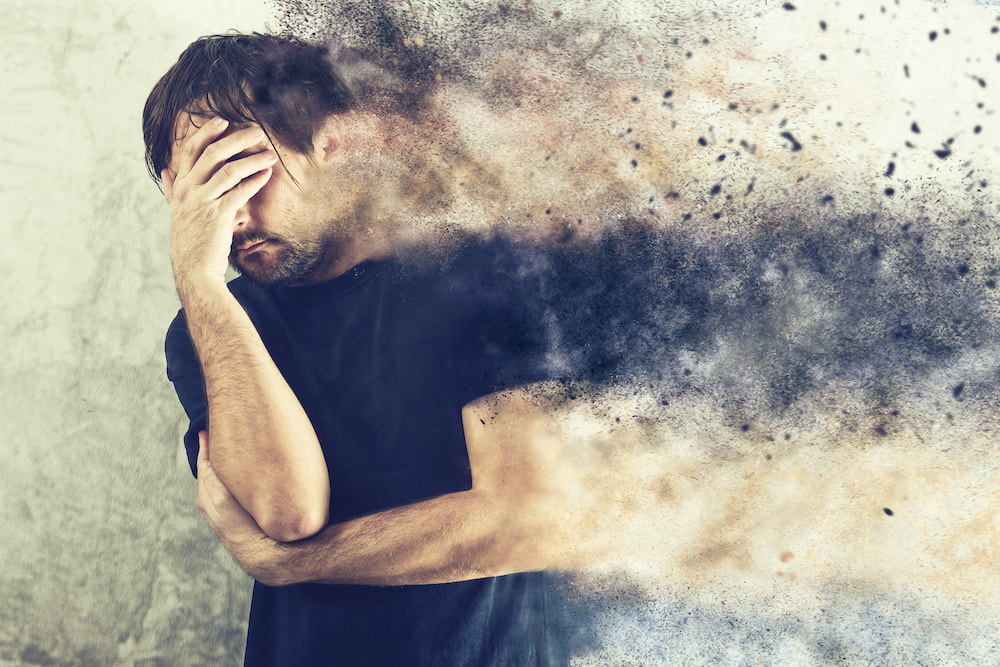

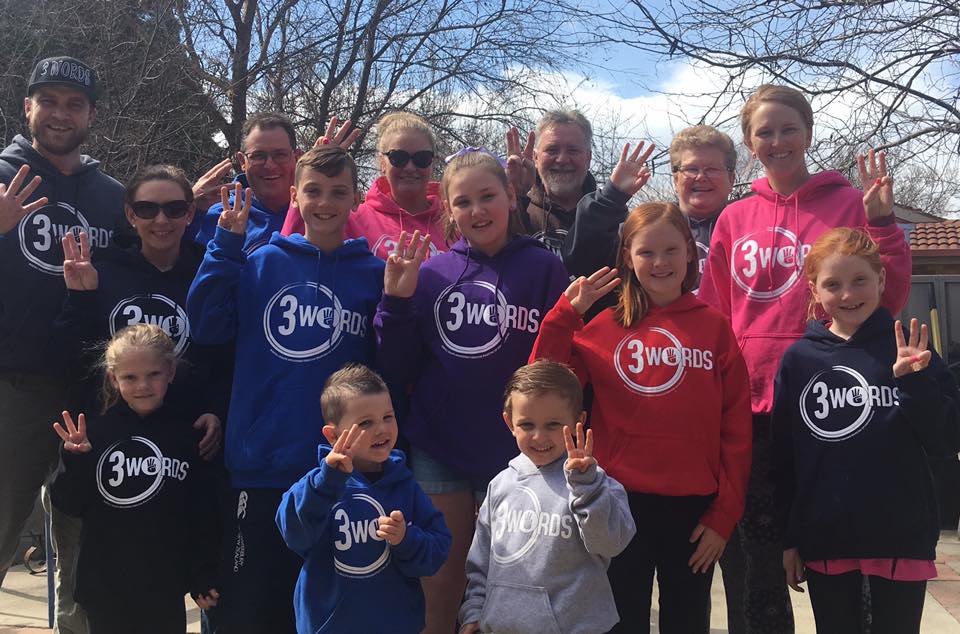
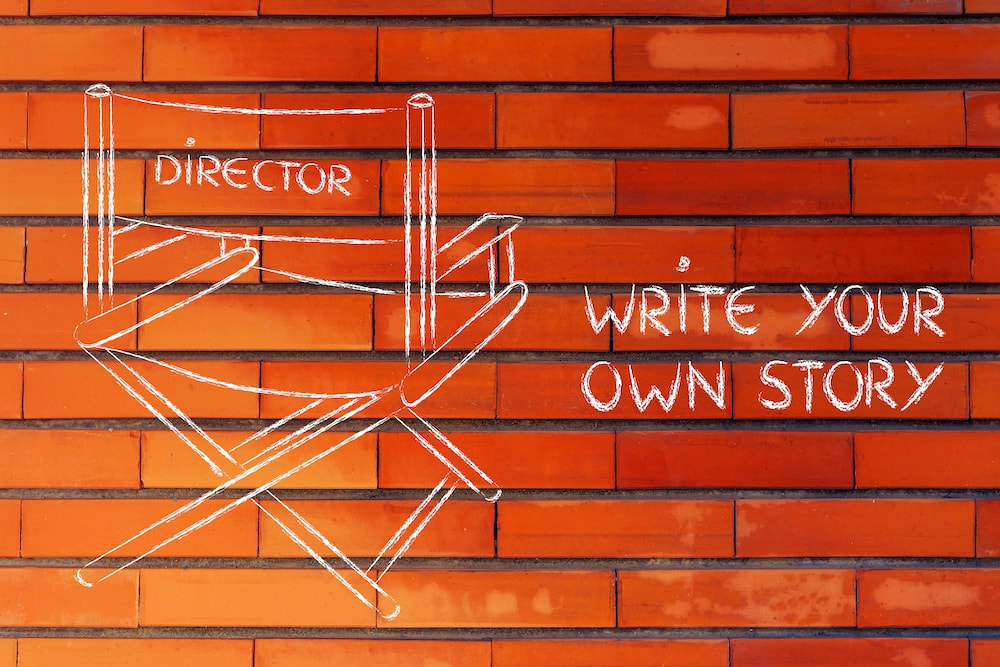




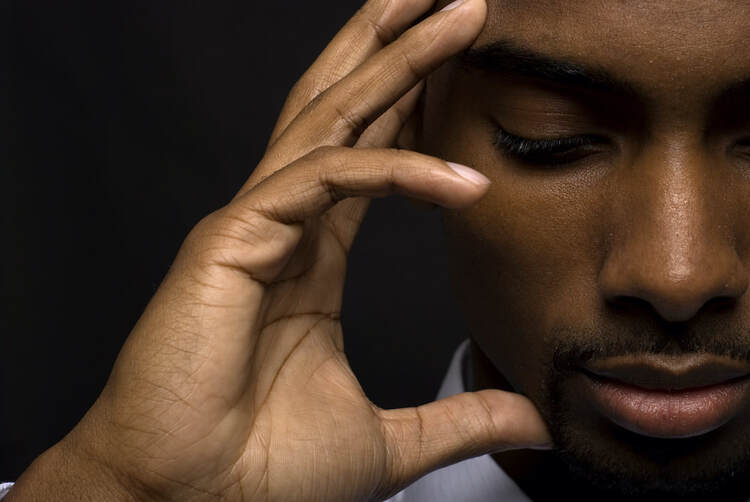


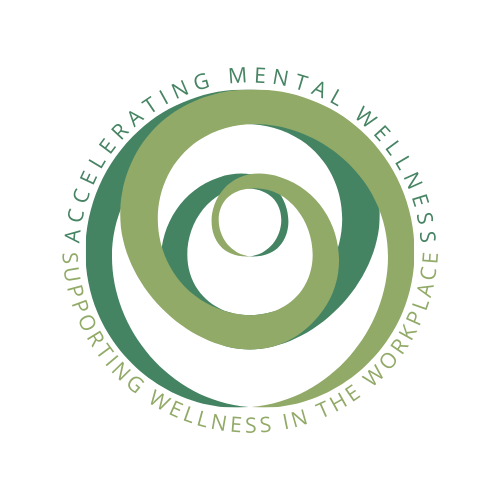
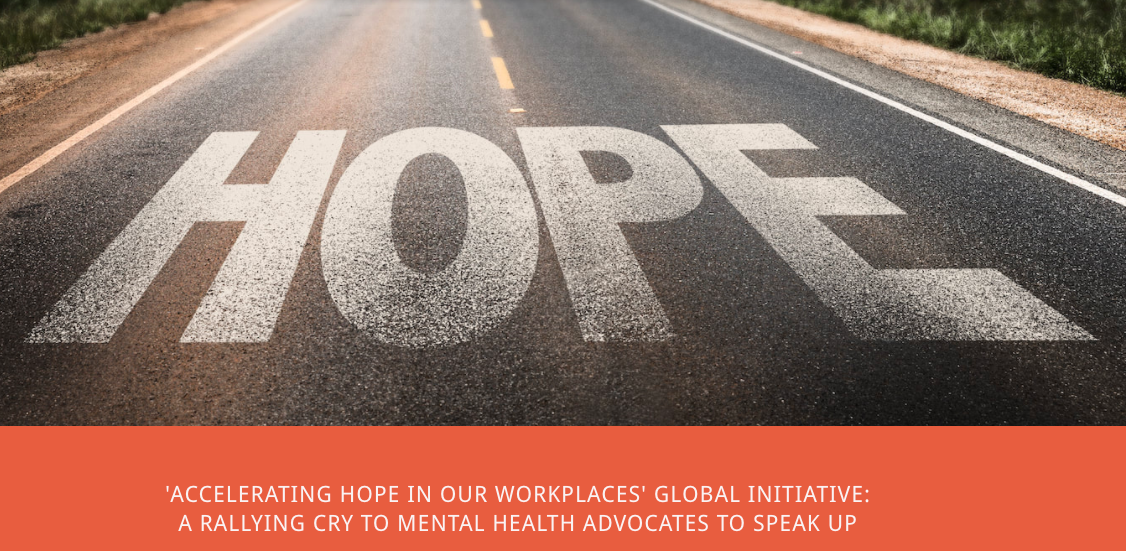

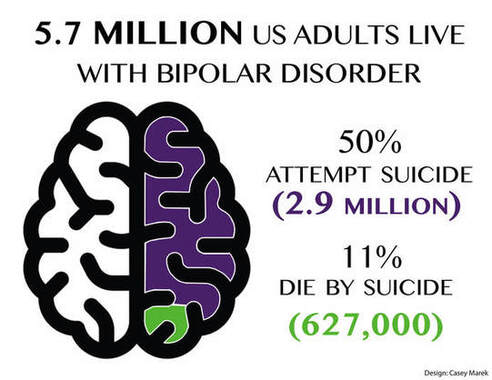



 RSS Feed
RSS Feed